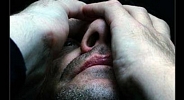|
|
 Acne (1,500) Acne (1,500)
 Addictions (1,500) Addictions (1,500)
 Advice (1,500) Advice (1,500)
 Allergies (1,092) Allergies (1,092)
 Alternative Medicine (1,500) Alternative Medicine (1,500)
 Anti Aging (1,500) Anti Aging (1,500)
 Breakup (1,500) Breakup (1,500)
 Cancer (1,499) Cancer (1,499)
 Dental Care (1,500) Dental Care (1,500)
 Disabilities (1,500) Disabilities (1,500)
 Divorce (1,500) Divorce (1,500)
 Elderly Care (1,498) Elderly Care (1,498)
 Goal Setting (1,500) Goal Setting (1,500)
 Hair Loss (1,500) Hair Loss (1,500)
 Health and Safety (1,497) Health and Safety (1,497)
 Hearing (1,500) Hearing (1,500)
 Law of Attraction (1,499) Law of Attraction (1,499)
 Marriage (1,500) Marriage (1,500)
 Medicine (1,497) Medicine (1,497)
 Meditation (1,499) Meditation (1,499)
 Men's Health (1,500) Men's Health (1,500)
 Mental Health (1,500) Mental Health (1,500)
 Motivational (1,500) Motivational (1,500)
 Nutrition (1,495) Nutrition (1,495)
 Personal Injury (1,499) Personal Injury (1,499)
 Plastic Surgeries (1,500) Plastic Surgeries (1,500)
 Pregnancy (1,496) Pregnancy (1,496)
 Psychology (1,500) Psychology (1,500)
 Public Speaking (1,500) Public Speaking (1,500)
 Quit Smoking (1,500) Quit Smoking (1,500)
 Religion (1,499) Religion (1,499)
 Self Help (1,500) Self Help (1,500)
 Skin Care (1,500) Skin Care (1,500)
 Sleep (1,500) Sleep (1,500)
 Stress Management (1,500) Stress Management (1,500)
 Teenagers (1,492) Teenagers (1,492)
 Time Management (1,500) Time Management (1,500)
 Weddings (1,500) Weddings (1,500)
 Wellness (1,500) Wellness (1,500)
 Women's Health (1,500) Women's Health (1,500)
 Women's Issues (1,500) Women's Issues (1,500)
|
The holidays finally are over, but stress is always with us. So it's important to find ways to reduce it. "Different people swear by different things," says Kathryn Bishopric, a registered nurse at South Miami Hospital's Behavioral and Collaborative Medicine Program, which offers medical and behavioral anti-stress approaches, from yoga and tai chi to massage and art therapy.
She and Dr. Miguel Almunia, a psychiatrist consulting with the program, run through a dozen different methods of stress relief and explain how they work.
Exercise: It helps the body process and excrete adrenaline and cortisol, two chemicals the adrenal gland creates when the body is under stress. And it stimulates the pituitary gland and hypothalamus to create those feel-good peptides we fondly call endorphins. Endorphins reduce pain and induce a sense of well-being.
Distraction: See a movie. Go fishing. Stop and smell the roses. Doctors aren't sure what goes on chemically, but PET scans can measure how it moves your brain waves into the relaxed alpha state. You're awake, but no longer hyper-alert, no longer obsessing about the problem at hand. Computer fans call it rebooting the brain.
Laughter: It's more than distraction; it has the almost instantaneous effect of relaxing the brain, and it can be measured by EEGs, Ms. Bishopric says. "A good laugh literally affects the entire brain; very little else does that," she says.
Crying: Tears of sadness or frustration contain, and thus excrete, toxic chemicals that do not occur in the tears from, say, chopping an onion, Ms. Bishopric says. "Laughing is still better than crying – unless you really need a good cry."
Sleep: It also reboots the brain. A good eight hours is essential, according to studies comparing the performance of rested people to that of tired people pumped up on coffee. Tired folks have less intellectual ability, more irritability, even depression. Doctors are so impressed they're even (occasionally) cutting the 36-hour-shifts they used to demand of interns.
Diet: Stressed people become hungry for the comfort of high-sugar, high-fat foods. But these burn off quickly, leaving them edgy, irritable and even more stressed. Fight stress with a balanced diet of fruits, vegetables and protein. Supplements, especially B vitamins and minerals, can help if you have an incomplete diet. But a good diet is better.
Meditation: In "agnostic mindfulness meditation," people are taught not to empty their minds but to focus them, to pay more attention to the task at hand. Think of Shaq when he's in the zone. He might even make a free throw.
Another type of meditation is religious. From a medical perspective it is a relaxation state. Some say prayer is talking to God, and meditation is listening to Him.
Yoga, tai chi: These combine meditation and exercise plus another crucial factor, social support. Some say we have three families, a family of origin (parents, siblings), a family of nurture (spouse and kids), and a family of choice (yoga class).
The latter is made up of people who are unrelated but whom we like to be with. An American Psychological Association study says people with the most supportive relationships rebounded best from the traumatic stress of 9/11.
Wine: In small amounts, it can help you relax, "but it's not recommended as a medication," Dr. Almunia says. Chemically, it's a depressant. It will sedate you and later have a rebound stimulant effect. So it'll put you to sleep, but wake you an hour later. Use with care.
Herbal teas: A nice brew of ginseng, for instance, can relax you, Dr. Almunia says. "I do believe they have a calming effect; it's been documented through the ages." Herbs such as St. John's Wort or valerian are for depression, not anxiety, he says, and may interact with drugs.
Aromatherapy: It can help, he says. Burning cinnamon, vanilla or other flavors of oil or incense relaxes some people. "It could be both physical and mental."
Drugs: Don't turn here for relief of temporary stress, Dr. Almunia says. These are for longer-term, more serious anxieties. If you're in that category, see your doctor.
|
|
|



